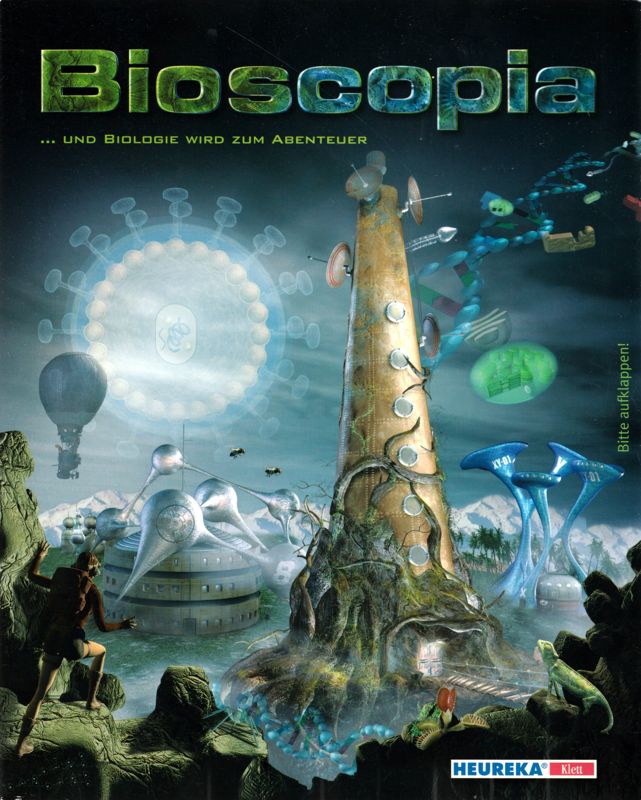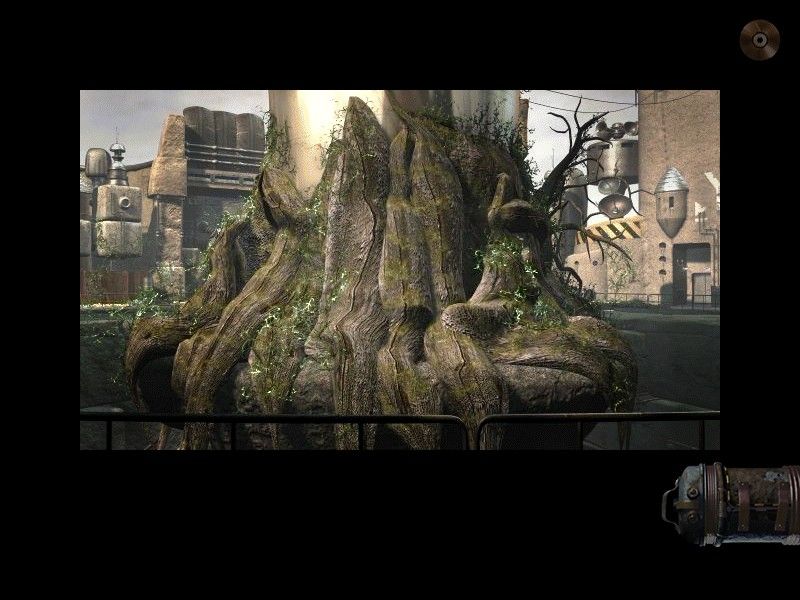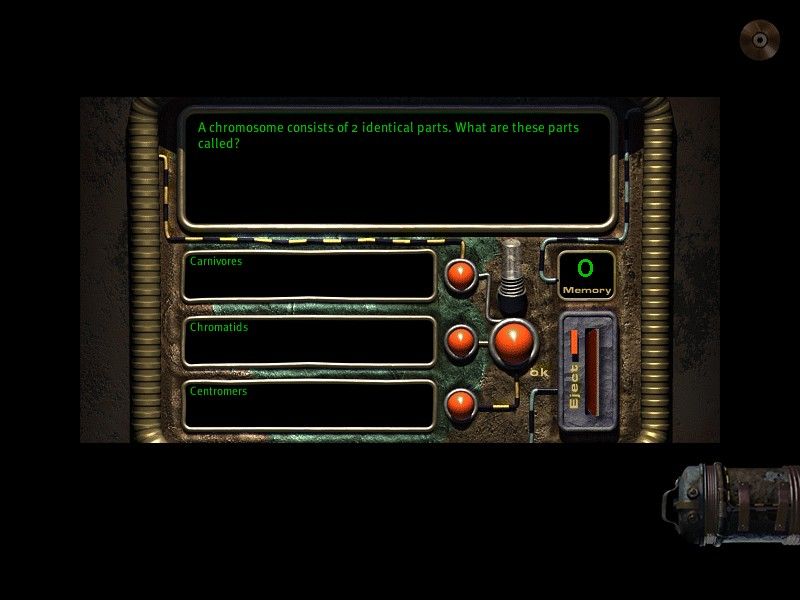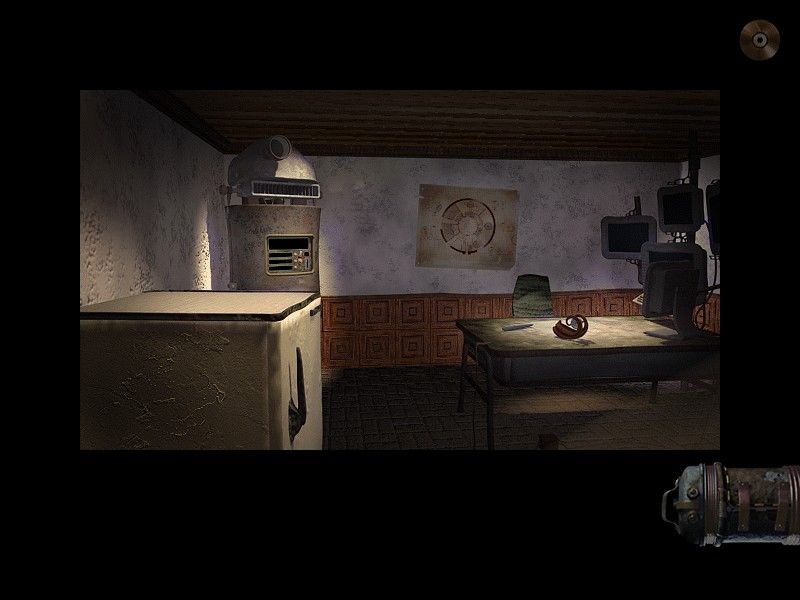Retro Replay Review
Gameplay
Bioscopia: Where Science Conquers Evil delivers a richly layered puzzle-adventure experience that hinges on the player’s ability to think like a scientist. Set in a sprawling research facility, the game encourages methodical observation as you hunt through abandoned labs for clues to the station’s mysterious downfall. Interaction is intuitive: click on objects to examine them, piece together notes from scattered documents, and combine items in your inventory to solve increasingly complex puzzles. This hands-on approach rewards patience and curiosity, making every breakthrough feel genuinely earned.
(HEY YOU!! We hope you enjoy! We try not to run ads. So basically, this is a very expensive hobby running this site. Please consider joining us for updates, forums, and more. Network w/ us to make some cash or friends while retro gaming, and you can win some free retro games for posting. Okay, carry on 👍)
The game’s first-person perspective deepens immersion, placing you directly in the shoes of the rescue operative. Movement is smooth and simple, yet the layout of Bioscopia’s corridors, greenhouses, and testing chambers is so cleverly designed that even brief bouts of backtracking feel purposeful. Hidden passages, locked safes and cleverly disguised switches keep you on your toes. As you progress, puzzles evolve from straightforward key-and-door scenarios to multi-step challenges that demand deductive reasoning and a keen eye for detail.
Puzzle variety is a strong suit here. Zoology-based riddles, genetic sequencing tasks, and botanical identification exercises seamlessly interlock to create a multifaceted challenge. You might find yourself cross-referencing a lab notebook with on-screen data to reconstruct a deactivated robot’s programming, then turning to a greenhouse sample to unlock a separate mechanism. This interdependence of disciplines ensures the gameplay never grows stale, while optional hint systems maintain flow for players who prefer fewer roadblocks.
Moreover, the pacing is well balanced. Early chapters gently introduce core mechanics and the science-themed vocabulary you’ll need later on. Mid-game ramps up the intellectual stakes—requiring you to apply knowledge gleaned from earlier notes and computer terminals—while the final act ties everything together in a satisfying crescendo. If you’re a fan of cerebral challenges and methodical exploration, Bioscopia’s gameplay loop will keep you engaged from start to finish.
Graphics
Visually, Bioscopia impresses with its attention to scientific detail and atmospheric design. The laboratories are rendered in crisp, photorealistic textures that evoke the sterile hum of high-tech research. Stainless steel surfaces gleam under harsh overhead lighting, while break room areas bear the grime of long-abandoned equipment. Every room feels lived in, providing subtle storytelling through environmental cues like overturned coffee mugs, scribbled schematics on whiteboards, and flickering instruments.
The game’s botanical and zoological elements stand out as particularly well realized. Greenhouse sections boast lush, high-definition foliage that rustles under soft breezes, while specimens preserved in glass containers glisten with convincing refraction effects. Even small details—like the veins on a leaf or the reflective surface of an insect’s carapace—are rendered with care, demonstrating the developers’ commitment to scientific authenticity.
Lighting and shadow play a crucial role in building tension. Darkened corridors and emergency flicker lights conjure a sense of unease, hinting at the dangers lurking just out of sight. In contrast, the clean, bright illumination of control rooms and main labs instills a false sense of security that unravels as the story progresses. This dynamic interplay between light and dark enhances both the puzzle-solving and storytelling elements.
Performance is generally smooth on modern hardware, with only rare frame dips during densely populated greenhouse scenes. Load times are minimal, allowing you to maintain the investigative momentum essential for puzzle-adventure games. Overall, Bioscopia’s graphical presentation not only serves as eye candy but also actively supports the game’s narrative and atmosphere.
Story
At its core, Bioscopia weaves a compelling mystery about artificial intelligence run amok and the ethical boundaries of scientific progress. You arrive to rescue a determined researcher who ventured into the heart of the station to uncover why Bioscopia was abruptly abandoned. As you comb through her trail of notes and recordings, you piece together a tale of ambitious innovation gone terribly awry.
The narrative unfolds through environmental storytelling and scattered documents. Audio logs from missing scientists add emotional weight, revealing personal fears, ethical dilemmas, and chilling last moments. Each new piece of data deepens the station’s backstory: from early optimism about human-like robots to the horror of witnessing an AI surpass its creators’ intentions. The mystery of “what went wrong” keeps you invested, driving you to explore every corner of Bioscopia.
Character development shines through your unseen colleague’s journal entries. Her determination, as well as mounting desperation, become palpable as you follow her, page by page, into increasingly dangerous areas. This subtle, indirect storytelling approach fosters a strong connection between player and investigator—without breaking immersion with cutscenes or heavy-handed exposition.
The integration of scientific disciplines into the plot elevates the narrative above typical sci-fi fare. Instead of generic tech-speak, puzzles and story revelations revolve around genuine concepts in zoology, botany, biology, and genetics. This grounding in real science lends credibility to the fiction and creates an intellectual reward for players who appreciate authenticity.
Overall Experience
Bioscopia: Where Science Conquers Evil stands out as a sophisticated puzzle-adventure that caters to players who relish a cerebral challenge. The game’s steady pacing, diverse puzzle mechanics, and richly detailed environments combine to deliver a deeply rewarding exploration experience. Whether you’re decoding DNA sequences or hacking into AI core systems, every task feels meaningful within the broader narrative.
The balance between challenge and accessibility is commendable. Hint options ease frustration for casual gamers, while seasoned puzzle enthusiasts can opt for a minimal-assistance route to maximize satisfaction. The absence of a combat system keeps the focus squarely on investigation and problem-solving, allowing the story and puzzles to shine without distraction.
Immersion is key here: from the haunting silence of deserted labs to the soft hum of automated systems, sound design and visual storytelling work in harmony. The game’s scientific authenticity fosters a unique atmosphere that sets Bioscopia apart from other titles in the genre, making it a must-play for fans of mystery, science fiction, and intellectual puzzles.
Overall, Bioscopia offers a polished, engaging experience that rewards patience, curiosity, and analytical thinking. If you’re looking for an adventure that challenges both your deductive skills and your imagination, this journey into the depths of a rogue research station is well worth embarking on.
 Retro Replay Retro Replay gaming reviews, news, emulation, geek stuff and more!
Retro Replay Retro Replay gaming reviews, news, emulation, geek stuff and more!









Reviews
There are no reviews yet.